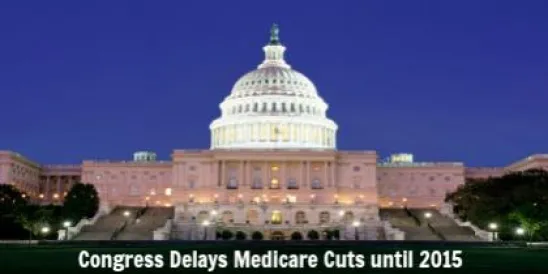In the January 28, 2014 State of the Union address, President Obama could not say much more on immigration than: "Let's get immigration reform done." Yesterday, Speaker of the House John Boehner responded "It's time to deal with it."
Seven months after the Senate passed their comprehensive immigration bill in a 68-32 vote, Republican House leaders released a one page "set of principles" that would form the basis of a few separate immigration bills - a "step by step approach" immigration reform in contrast to the Senate bill, which the Republicans described as "a single, massive piece of legislation that few have read and even fewer understand."
The principles focus on six areas: border security, workplace enforcement, permanent residency (green cards), nonimmigrant (temporary) visas, children of undocumented aliens, and adult undocumented aliens, with the following plans:
1. Border security - a zero tolerance policy on entry/exit, supported by biometric technology - those who cross the border illegally or overstay the time they have been authorized at the border will face serious consequences. The critical need to build in requirements for consistent enforcement of immigration law is also emphasized.
2. Workplace enforcement - a fully electronic employment verification system to prevent the use of fraudulent documents. This might mean, for example, that the government's eVerify system, which is now used but not required, would be mandated for all employers.
3. Permanent residency - "green cards" - more visas for degreed professionals, particularly in certain "highly skilled" fields. Rather than an increase in the number of visas issued, the principles suggest a shift in visa issuance, adding to the number of employment based visas by stealing from the numbers of green cards currently issued based on family ties and from the Diversity Visa Lottery. The lottery was initiated in 1995 to provide green cards to underrepresented nationalities, with no requirement for family ties or job offers. Despite the romance of a green card lottery win by random people all over the globe, the logic of the Diversity Visa program has been questioned for years. Eliminating or restricting the family based visa categories, however, could face a stronger challenge. The first family based category to go might be visa petitions filed by US citizens on behalf of siblings, which carries a very long waiting line under current law. But visa petitions by parents for their adult children could be under consideration for the chopping block, as well, or even visa petitions by adult US citizens on behalf of their parents.
An important question is the detail and flexibility in proposed legislation - will only certain university degrees or occupations be identified as a requirement for these new employment based visas or will this be left to the government regulations passed by the USCIS or the US Department of Labor? Will job offers be required? Will there be a mechanism for change in the future as our economy changes, and how would this be decided? Is an increase in visa numbers for professionals all that is on the table, or will we also try to revamp the current Department of Labor requirements for expensive and tedious recruitment campaigns by US employers desiring to file for permanent residency on behalf of their employees?
4. Temporary employment based visas - the principles point out the need to issue temporary visas to meet the "economic needs of the country" that “do not displace or disadvantage American workers.” This statement is vague, but important, as it could mean significant changes to our current nonimmigrant visa program. The agricultural industry is the only field mentioned in particular, but will other specific industries in need of foreign workers be singled out for particular visas? Or will current employment based temporary visas be continued as is, with an increase in visas for degreed professionals, maybe with additional visas issued to those who graduate from US universities on student visas?
We should expect to see an immediate push by businesses for additional visas for those with university degrees in job related fields, since H-1B visa petitions by US employers attempting to bring in degreed professionals must be filed on April 1st, and are expected to be oversubscribed again this year.
5. Undocumented youth - stating that "one of the great founding principles of our country was that children would not be punished for the mistakes of their parents," the document announces the intention to issue green cards for children who were brought here illegally by their parents, or allowed to overstay their visas, if these children serve honorably in the US military or graduate from college.
Question: what about the children who are unable to join the military, or are unable to be accepted or graduate from college, by no fault of their own. Will they continue to be punished for the mistakes of their parents? These kids are actually the least likely to be able to start a new life in a foreign country - will there be exceptions to protect them? For many years, there has been a push to legalize undocumented children who were brought to the US illegally, or allowed to overstay visas. This "Dream Act" legislation has been introduced several times, but has never been passed. Without Congressional approval, in 2013, the Obama Administration issued work and travel authorization to certain undocumented children who came to the US before age 16, but this only provided a temporary status and has been criticized as impermissible Executive Office overreaching. A DREAM Act proposal might gain approval by both Republicans and Democrats, but it will need to be thoughtfully designed.
6. Undocumented aliens - other than the children mentioned above, what do we do with the rest of the 11 million who are here illegally? The principles released yesterday clearly state that there will be no "amnesty" - no special path to US citizenship - but that long-term residency with employment authorization would be granted to applicants after background checks, fines, back taxes, proven proficiency in English, and documentation of ability to support themselves without reliance on government benefits. The policy would not be rolled out until procedures were put into place to insure enforcement of immigration laws in the future - this likely refers to the border security policies, the enhanced entry/exit system, and the electronic employment verification system above. Don't call it "amnesty" if that makes you feel bad, but this modified "turn in your library books by Friday and you won't have to pay a fee" policy will be considered by many to be a reasonable step towards solving a very complex and long simmering problem.
Though we have no details yet, the plan seems to be as follows: You can stay here, you can work, you can travel in and out of the country. You just can't apply for US citizenship (meaning, you can't vote - and that is the big political hot button) unless you go through the same legal channels as everyone else. The debate here should not be focused solely on citizenship but on whether those who apply for permanent residency through legal channels - currently a lengthy, often expensive, and challenging path - should be treated worse than those who gain permanent residency by virtue of having lived here illegally.
This statement of principles might be as close as we have come to a proposal that can float. Of course, there will be objections - too liberal, not generous enough, enforcement is too expensive, selective enforcement is too risky, and even that dealing with immigration reform right now is politically unwise when health care reform is still a major divisive issue. But even if the Democrats really mean "let's get it done" and the Republicans sincerely believe that "it's time to deal with it," we should not accept any solution that sounds fair on its face to the public, but actually is not based on a detailed study and fair resolution of the real issues impacting US businesses and individuals in the legal immigration line for years, as well as those here without legal authorization.



 />i
/>i

